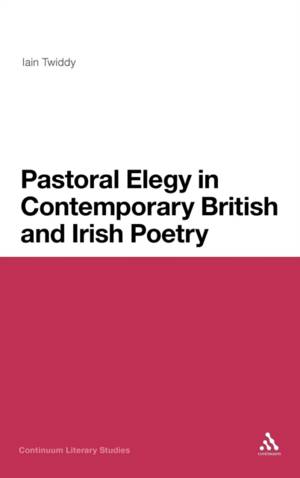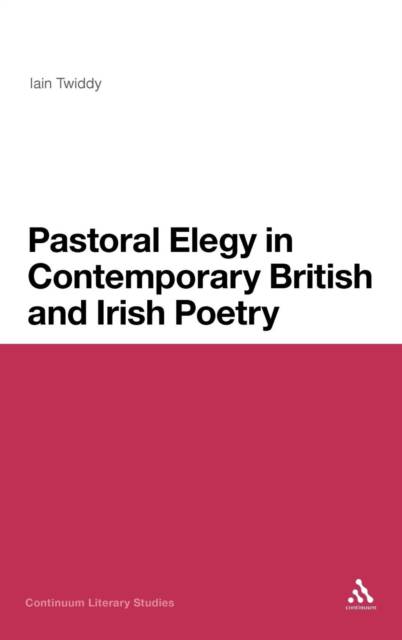
- Afhalen na 1 uur in een winkel met voorraad
- Gratis thuislevering in België vanaf € 30
- Ruim aanbod met 7 miljoen producten
- Afhalen na 1 uur in een winkel met voorraad
- Gratis thuislevering in België vanaf € 30
- Ruim aanbod met 7 miljoen producten
Zoeken
Pastoral Elegy in Contemporary British and Irish Poetry
Iain Twiddy
€ 322,45
+ 644 punten
Uitvoering
Omschrijving
Defying critical suggestions that the pastoral elegy is obsolete, Iain Twiddy reveals the popularity of the form in the work of major contemporary poets Seamus Heaney, Ted Hughes and Paul Muldoon, Michael Longley, Douglas Dunn and Peter Reading.
As Twiddy outlines the development of the form, he identifies its characteristics and functions. But more importantly his study accounts for the enduring appeal of the pastoral elegy, why poets look to its conventions during times of personal distress and social disharmony, and how it allows them to recover from grief, loss and destruction. Informed by current debates and contemporary theories of mourning, Twiddy discusses themes of war and peace, social pastoral and environmental change, draws on the enduring influence of both Classical and Romantic poetics and explores poets' changing relationships with pastoral elegy throughout their careers. The result is a study that demonstrates why the pastoral elegy is still a flourishing and dynamic form in contemporary British and Irish poetry.Specificaties
Betrokkenen
- Auteur(s):
- Uitgeverij:
Inhoud
- Aantal bladzijden:
- 304
- Taal:
- Engels
- Reeks:
Eigenschappen
- Productcode (EAN):
- 9781441139412
- Verschijningsdatum:
- 17/05/2012
- Uitvoering:
- Hardcover
- Formaat:
- Genaaid
- Afmetingen:
- 156 mm x 234 mm
- Gewicht:
- 589 g

Alleen bij Standaard Boekhandel
+ 644 punten op je klantenkaart van Standaard Boekhandel
Beoordelingen
We publiceren alleen reviews die voldoen aan de voorwaarden voor reviews. Bekijk onze voorwaarden voor reviews.







